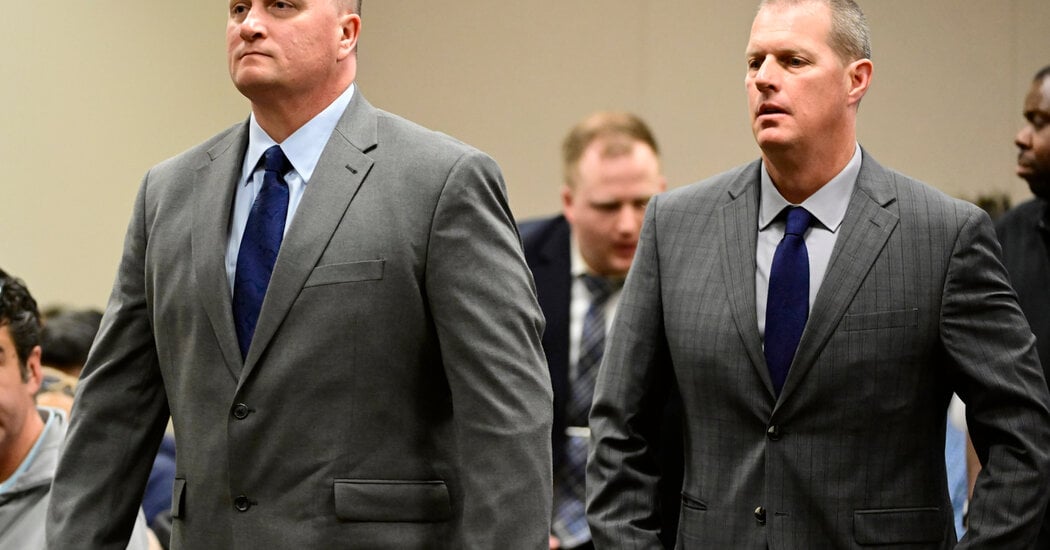Two Colorado paramedics were convicted of criminally negligent homicide in the 2019 death of Elijah McClain, a young unarmed Black man whose case drew national attention and forced public safety reforms in the city where he lived and died.
A mostly white jury found the paramedics, Peter Cichuniec and Jeremy Cooper, guilty of a more serious charge they faced. But the jury split on two lesser assault charges: They cleared Mr. Cooper of both assault charges, but convicted Mr. Cichuniec of one of those charges, second-degree assault for the unlawful administration of drugs.
The men had injected Mr. McClain with the powerful sedative ketamine while he was in police custody in Aurora, Colo., which doctors said left him near death. He died days later in the hospital.
The trial was a rare prosecution of paramedics, and raised the question of the role that medical personnel play in police encounters and whether they could be held criminally responsible for their actions.



I’m not here do debate the details that go into complex situations as they need to be taken on a case by case basis. I apologize that you interpret this as immoral and I assure you the bar to go against a patient’s wishes is very high. Please take into consideration the fact that in emergency situations people are not always able to provide consent and that I am forced to work under what’s called “implied consent” meaning that if someone needing help is unable to provide consent I am to act as if they would consent to help if they could.
Which means I am not only authorized to medicate someone without consent but in situations where safety comes into question I am expected to. If you don’t like this then I encourage you to get involved with your local agencies and look into your area’s laws and advocate for the changes you want to see. But your comment sounds like someone screaming “I don’t consent” while being arrested, except that’s not what’s going on here. I am required to listen and follow someone’s wishes if they are able to provide informed consent and I am required to act as if they would consent if they cannot. It’s written in every textbook I’ve ever read, it’s written in my state’s laws, and it’s written in my department’s policies.
I can only assume you’ve never dealt with complex medical emergencies if you think everything that happens in an ambulance or helicopter is the same as going into a hospital for an elective or routine surgery they requires a dozen signatures to consent and multiple doctors explaining risks and complications of the procedure being performed. If you’d like to learn more I would encourage you to see if your local fire department or ambulance service would allow you to do a ride a long.
If you think someone being attacked and abused by the cops has given you implied consent you have never understood your own oath in the first place.
This will be my last reply to you as this is not a productive conversation and you are jumping to conclusions assuming we “take an oath” and refusing to acknowledge that we work on limited information while being forced to make decisions. Dislike it all you want, but by not acknowledging that this is how it works and not taking steps to change that you don’t like means you’re also allowing it to happen. If you’d like to be an adult and have an intelligent discussion instead of using fallacious attacks then by all means I am happy to discuss further.